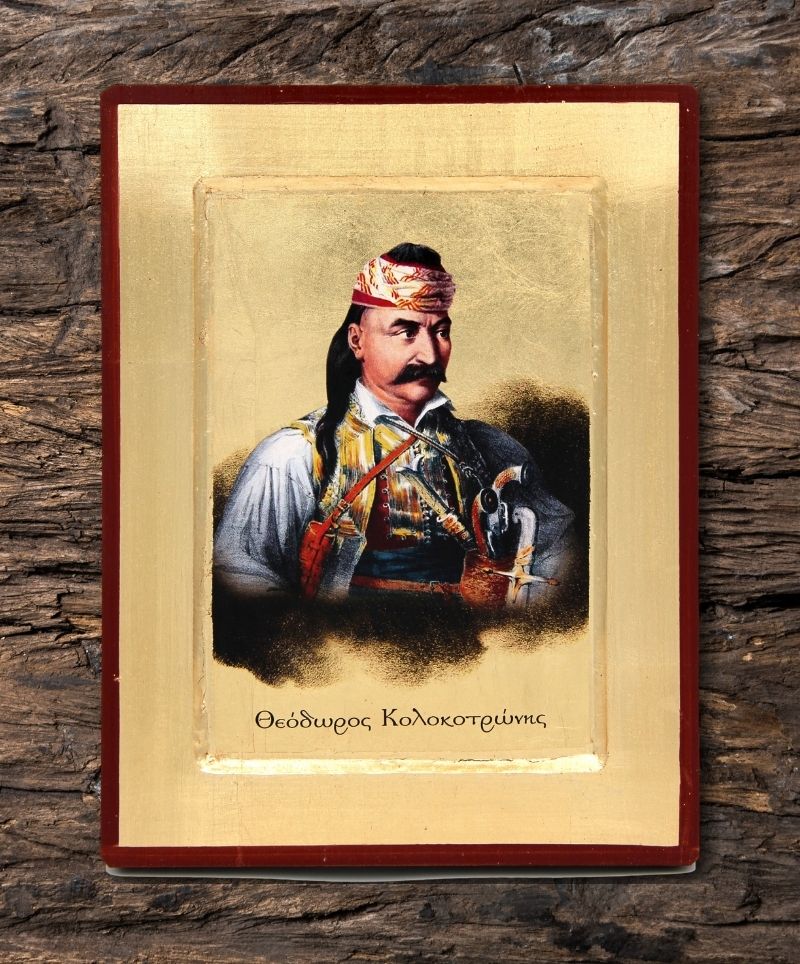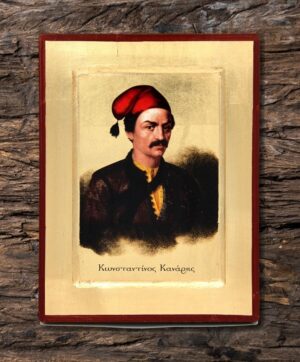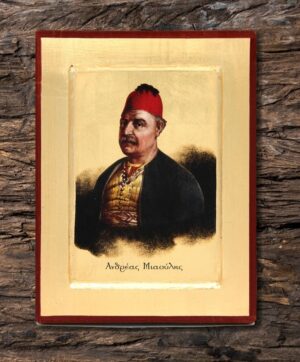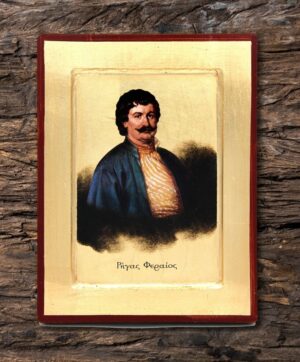Description
Theodoros Kolokotronis was born on April 3, 1770, on a mountain, below of a tree, in the old Messinian, called Ramavouni, as he mentions in his Memoirs. He was the son of the thief-captain Konstantis Kolokotronis (1747-1780) from Limbovisi, Arcadia, and Georgitsa Kotsaki, daughter of a prostitute from Alonistaina, Arcadia. The family of the Kolokotronians from the 16th century, which appears at the forefront of history, is in a constant war with the Turks. From 1762 to 1806 alone, 70 Kolokotronians were exterminated by the conquerors.
In 1780, he was 10 years old when his father was killed by the Turks, an event that marked his life. At the age of 17, he became the chief of Leontari and at the age of 20, he married the daughter of the local provost, Aikaterini Karousou. In 1806, during the great persecution of thieves by the conquerors, he managed to escape and take refuge in Zante, where he enlisted in the English army and rose to the rank of major. In 1818 he was initiated into the Friendly Society and at the beginning of 1821, he landed in Mani to take part in the upcoming Struggle.
On March 23, 1821, he participated in the military corps under Petrobei Mavromichalis that occupied Kalamata, marking the beginning of the Greek Revolution. Immediately after, he set out to occupy Tripolitsa, the Ottoman administrative center in Moria, because otherwise, the revolution could not have prevailed, as he believed.
The victory of the Greeks in Valtetsi (May 13, 1821) and the fall of Tripoli (September 23, 1821), which are due exclusively to Kolokotronis, imposed him as the leader of the revolutionary army of the Peloponnese.
At the battle of Dervenaki (July 26-28, 1822), where Dramalis’ army was destroyed, his strategic genius emerged and the Koundouriotis government appointed him commander-in-chief of the revolutionary forces. The same government, however, would imprison him in Hydra, during the civil conflicts of 1823 and 1824, where he played a leading role. He would release him in May 1825, when Ibrahim threatened to suppress the revolution and re-assign him the leadership of the Struggle. As an expert of the war of theft and the “scorched earth”, will manage to keep alive the revolution until the Battle of Navarino (October 7, 1827).
After his release, he joined Ioannis Kapodistrias and became one of the prominent leaders of the Russian Party. During the Duchy, he was persecuted as regent and sentenced to death in May 1834. After coming of age, Othonas pardoned him, appointed him advisor to the State and named him lieutenant general.
Theodoros Kolokotronis died of a stroke on February 4, 1843, shortly after returning home from a reception at the Palace. From his marriage to Aikaterini Karousou he had four children: Panos (1798-1824), Gennaios (1806-1868), Kollinos (1810-1848) and Eleni, while from his relationship with Margarita Velissari Panagiotakis (1836-1893), whom he recognized in his will.








